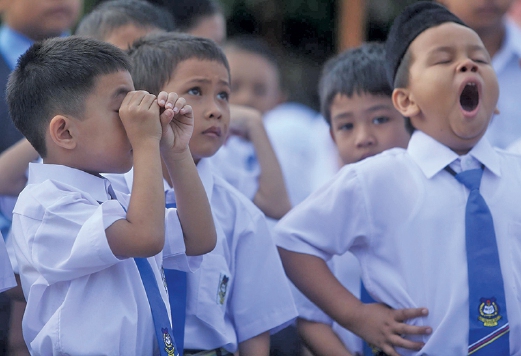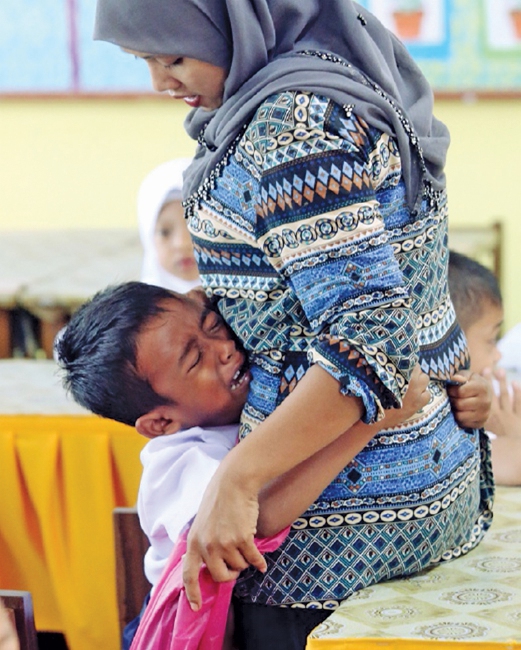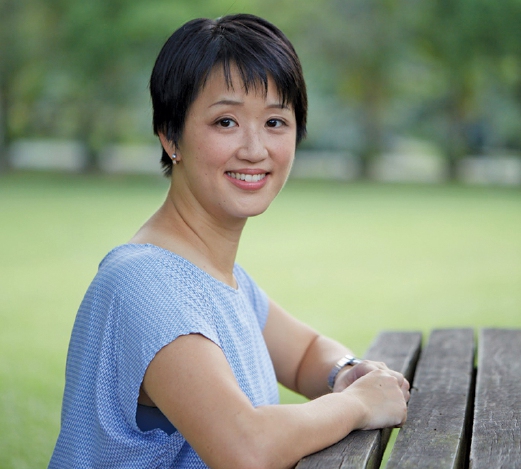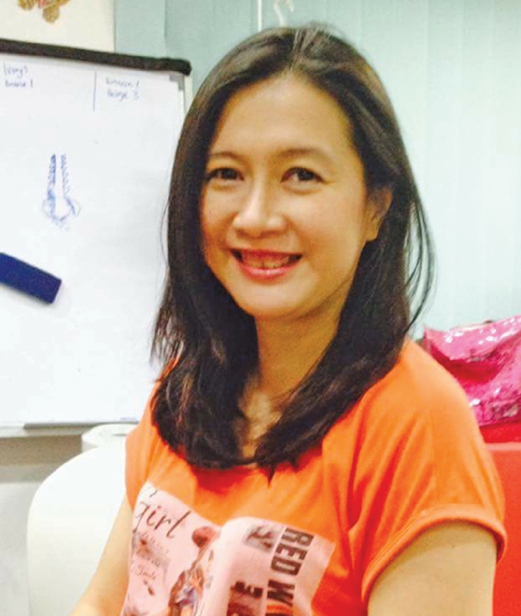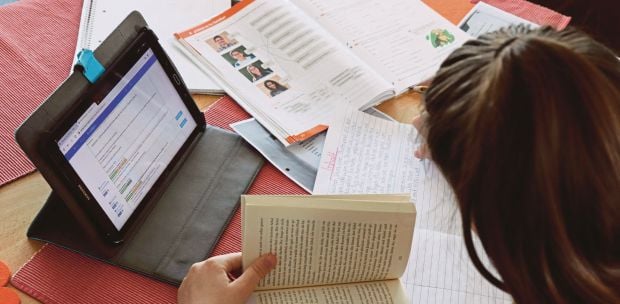COMMON CHALLENGE: Starting in a new school is an experience that all will have
COME January each year, some children will be starting school for the first time while others will be making the transition from primary to secondary school.
Many parents themselves may feel anxious when their children are among those for whom the year ahead will be a milestone one.
Parents can prepare for such a time so that they are ready in meeting their respective challenge.
STARTING YEAR ONE
Getting ready for Year One involves both parents and children.
One never quite knows what to expect when one’s child is starting Year One.
Although how the child may have gone through playschool, pre-school and kindergarten may give some idea, it is still a different environment to be adjusted to.
Dr Shen-Li Lee, author of Brainchild and mother of two, has been discussing with other parents on this issue and getting their feedback.
“The first year of primary can be quite daunting even if a child is used to the school setting from kindergarten, because the classes are usually larger and there are more pupils overall,” she said.
Retired schoolteacher Abdul Rahman Hussin said that before the first day, parents should get to know the school and its administrative set-up.
“Be familiar with the particular school’s checklist of basic requirements, including the rules and regulations, and conform to them,” he said.
“Know the timetable and daily routines so that the child will not be late for or miss sessions such as school assemblies.”
Serena Khoo, a mother of four, said that parents must be ready with all that the child would need from day one.
“Visit the school for a day of orientation and pick up items such as badges, name tags and school workbooks that are not provided by the government,” she said.
“Take the child around the school premises, to see where the toilets and canteen are. At some schools, parents can arrange with the canteen vendors to cater for their child’s daily food which will be prepaid.
“Then, make sure to get the right uniforms, ideally three sets. The child must have everything required from school bag to stationery, and food containers if the plan is to pack food from home.
“For transport, arrange with drivers of school buses or vans, or carpool.”
She added that if the child of English-speaking parents is going to a vernacular school, the parents can install a dictionary app to help the child.
Abdul Rahman said that parents should show the child how to organise his personal items like stationery so that they will not get mixed up with those belonging to other children.
“Labelling the items is one way, but it is best to not use expensive stationery or you will be sorry if it gets lost,” he said.
“Even water bottles can get mixed up with others’, or the child may forget and leave it behind in school.”
Khoo agreed that labelling is a good idea.
“Do label personal items such as bottles, containers and even the inside of shoes,” she said.
“Some parents tend to buy very expensive containers to keep the food warm, but these can end up getting lost if the child forgets to bring them home.”
Abdul Rahman added that as part of good hygiene, the sharing of personal things such as handkerchiefs, should be avoided.
“Children should also be made aware that they should not suck the tips of pencils, keep long fingernails or not wash their hands properly,” he said.
“Good hygiene habits must be instilled to prevent sudden illnesses that can be dangerous to the child,” he said.
“It is also important that the child recognises any sudden onset of illnesses or ailments like food poisoning and inform the teacher immediately.
“Parents must know the health and emergency procedures of the school to avoid confusion in cases of an emergency and to enable spontaneous and effective action.
“If their child has a health problem, it is also proper for the school to be informed beforehand. Remember, the school caters for children from all walks of life and backgrounds.”
He added that it is good to teach the children some safety tips as while they are in school, they tend to be playful at times and not know the potential dangers of pushing and jostling to get to the front of the line or rushing to their parents after school while carrying their school bags.
“They can end up falling face down as a result, so always remind them to take care and not be clumsy,” he said.
Khoo said that trolley bags are only suitable for first year pupils as after that, they will be climbing stairs and older children tend to be run more which is difficult with trolley bags.
“However, if using a trolley bag, it is best to invest in a heavy-duty one or you will find having to replace it every few months,” she said.
Year One is also the beginning of formal education that comes with assessments, report cards, attendance records and peer responsibilities.
“The work is more structured and there is more writing involved as compared to kindergarten or playschool,” said Lee.
“The hours are longer as well. Probably the biggest change for some children is that there will be no nap time in school, and that will require some adjustment.”
Lee said that in light of this, it is important for the young child to get into a good sleep routine because children need a full night’s sleep to function at their best in school.
“It is better for them to get a full night’s sleep than to split the sleep with an afternoon nap after school and a later bedtime,” she said.
It is also essential for parents to know how their child will socialise in groups and react to challenges.
Children are not similar to one another physically, mentally and emotionally. At the same time, there are those who are outgoing, unruly, reserved or even reclusive.
These different children will all be in the same classroom together, and they need to be ready for each other.
The child is going to be separated from the parent for a good part of the day. For some, that may be a welcome prospect while for others, a scary one. Which group does your child belong to?
Lee said that parents generally want their child to experience a steady start to their school experience that will pave the way for smooth sailing in the many more years ahead.
Parents need to prepare their children for non-academic skills as well, such as dealing with bullies and the principles of sharing, she said.
A good advice would be to avoid creating enemies but at the same time, be wary and keep one’s distance from bullies and those who are boastful so that one will not be adversely influenced by them.
Children who are shy should be taught to speak up in class so as not to become sidelined by the more outspoken ones. Tell them “it is all right to make mistakes, as that is how one learns”.
Children should also learn to laugh at themselves and not be over-sensitive when being made fun of.
“When you make a mistake, be honest and own up, then have a good laugh, rather than feel ashamed and then try to make denials or to cover it up,” said Lee.
“This is an important lesson for life. When we don’t admit to mistakes, we end up being insecure and having an inferiority complex.”
And for good reason, others tend to have more respect for the former rather than the latter, so this early experience can make a big difference that will impact one’s whole life.
Abdul Rahman said that children should be made aware of basic communication skills, including body language and gestures, which help them in their interaction with friends and even teachers.
“Being friendly helps the child to adapt quickly to the new environment,” he said.
Year One in school will require children to be ready for class work, and this will include having the correct textbooks for the day as well as being equipped with the necessary stationery.
“Teach them to record their daily homework in a notebook and also get a folder for all their homework to be placed together,” said Khoo.
In the evenings, parents can help their children pack for the next school day by checking the timetable to make sure they do not forget the textbooks they will need.
They may also need to pack their attire for physical education when those sessions are scheduled, and then learn about changing clothes as and when required.
Over time, once the child gets the hang of packing the schoolbag with the books, stationery and whatever else will be used the next day, the parent can let go of that responsibility.
This is the first taste of independence for young children and for many of them, entering Year One is also the time they start getting pocket money to spend.
Those who do not bring packed lunches from home and even those who do will now have the freedom of deciding what food and drinks to buy for themselves.
This is the time to teach the child about handling and managing money, and even saving up what is not used.
As your Year One child is new to the schooling experience, it is important at the end of each day to find out how the day went, both in class and outside the classroom.
Learn to get information without having to pry. Some children will be ever eager to share about their day, while others will be reticent for various reasons.
From the latter, it is best to coax the information out by being non-judgemental. Once the parent has earned the child’s trust, information should be more easily forthcoming in future.
Abdul Rahman and Khoo both stress the importance of knowing the school’s teachers and even some of the classmates’ parents.
“You can contact them for feedback or advice, like if your child had been absent or is not sure about the homework being assigned,” said Khoo.
Where there is an active Parent-Teacher Association in existence, it is recommended for at least one parent to attend meetings during the year.
This is where parents can touch base with teachers and also compare notes with other parents.
MOVING UP TO SECONDARY SCHOOL
Starting secondary school means facing all kinds of new challenges, so how the child responds to these challenges, whether to overcome or submit to them, can ultimately make or break that child.
One of the biggest changes to cope in the transition from primary to secondary school is that from being the oldest, one is back to being the youngest.
As Year Six pupils, the child is among the most senior in school and then overnight, as First Formers, the child becomes the most junior. They are back to being the small fry.
SMK Bukit Bandaraya senior assistant (administration and curriculum) Shamsiah Abdullah said that students in secondary schools, being more matured, will find themselves having to make critical decisions concerning learning preferences, after-school pursuits as well as friendships.
“They must be prepared when the time comes for them to make those decisions,” she said.
“Students’ attendance is compulsory in school as this will ensure that they are aware of the paradigm shifts that avail throughout the education systems and able to follow the changes to enable them to equip themselve with the skill needed to excel in their daily life as they face real world challenges.”
Secondary school is the place where friendships made will usually last a lifetime.
Most primary school classes tend to have a more homogenous make-up while those in secondary schools tend to be more diverse.
As there will be fewer restrictions on movement and choice, the child will need to be advised in advance on being discerning in making friends.
For parents of children starting secondary school, Abdul Rahman said it is best to choose the school where most of the child’s primary school friends attending, unless the intention is for the child to go to a boarding school.
“When the child is among familiar friends in a new school environment, the child may feel more secure and less fearful of being ignored, teased or bullied,” he said.
“Friends can provide help in many ways — academic, co-curricular as well as socially.”
Form One is the year when children turn into teenagers, when adolescence and puberty set in.
They will then need to understand about sexual matters, and it is better for them to hear it from the parents than learn from their peers.
This is also the time when children may become more rebellious so when parents want to discourage something, it is better to explain with reasons than just forbid something outright.
There will be more distractions from studies as well, so parents can help their children identify healthy extracurricular activities that they would be interested in sooner than later.
Being involved in healthy pursuits such as music or a sport will help prevent the child from being dragged into undesirable activities.
Abdul Rahman said that teenagers will tend to depend on their peers for support, while Lee said that in the lead-up to secondary, parents should “take a step back while incrementally add responsibility to the child to manage their own duties”.
She said that one should let the child take responsibility in studies and extracurricular activities, while parents should ensure there is a conducive environment at home for schoolwork revision and provide support for whatever healthy after-school pursuits that have been chosen.
“Children need to take more initiative to address issues with teachers since they will have different teachers for different subjects,” she said.
Abdul Rahman said that academically, there will be assignments for different subjects, so working with friends can help.
“If you know a senior student, you can get help from that student; otherwise, it is always back to those whom you know from primary schooldays,” he said.
“Always plan early and collect relevant information for the projects.
“Do not delay working on the projects; keeping watch on your work progress will help to prevent later stress as the schoolwork will pile up with each passing day.”
He added that secondary school students may wish to have tuition to excel, but they must be selective in terms of the subjects and the tuition teachers.
“In secondary school, parents can also start to encourage and motivate their children’s learning by taking them to various exhibitions and getting them to attend seminars or take part in competitions to open their eyes and bolster their self-confidence,” he said.


